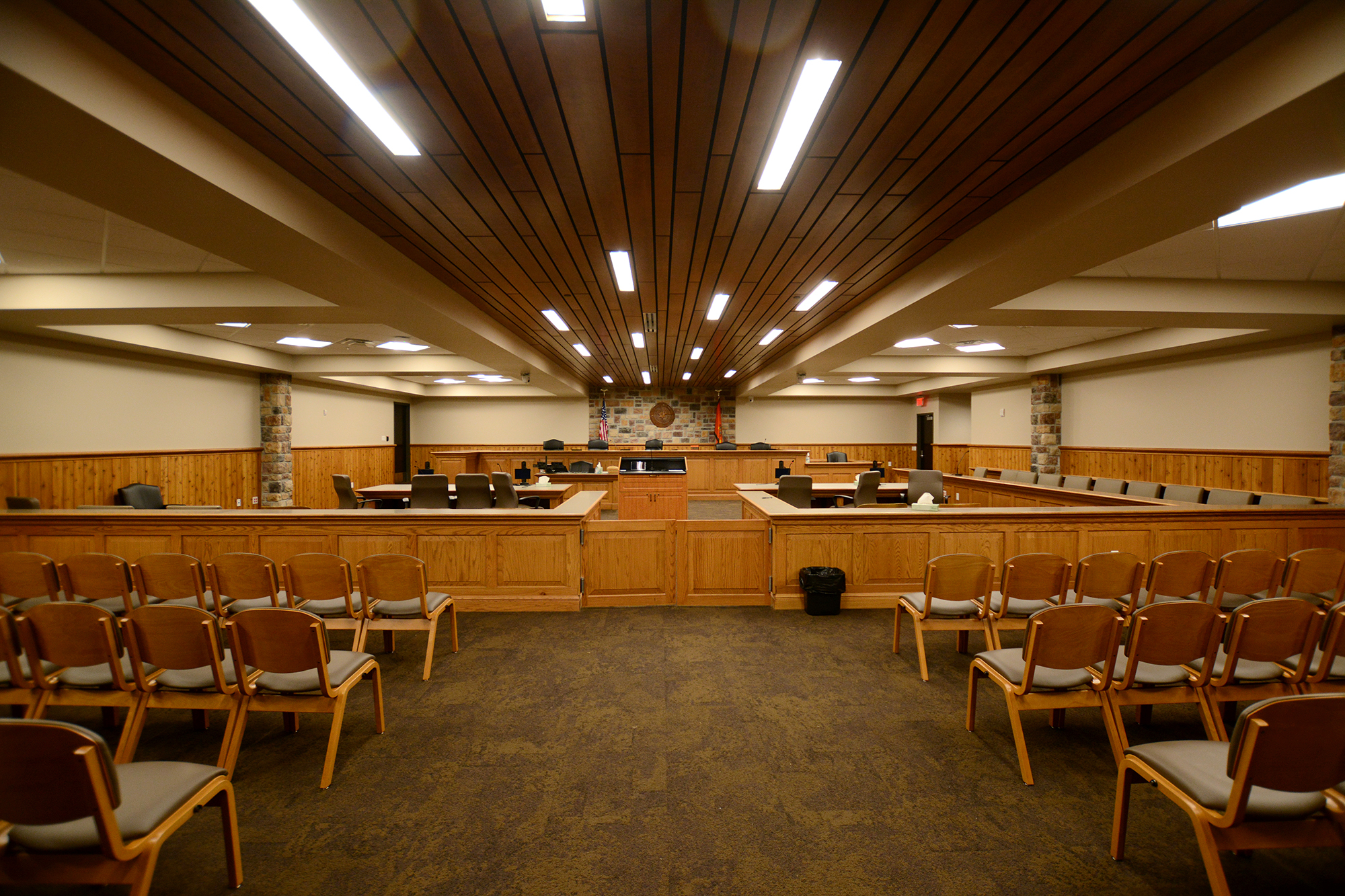
Cherokee Nation Principal Chief Chuck Hoskin Jr. has established a new commission to make funding and resource recommendations and examine other related areas in the wake of the historic United States Supreme Court McGirt decision. Photo courtesy Cherokee Nation
Chief Hoskin establishes sovereignty commission in wake of McGirt decision
August 13th, 2020
TAHLEQUAH, Okla. — Cherokee Nation Principal Chief Chuck Hoskin Jr. has established a new commission to make funding and resource recommendations and examine other related areas in the wake of the historic United States Supreme Court McGirt decision.
Chief Hoskin signed an executive order today that establishes the Commission for the Protection of Cherokee Nation Sovereignty.
In addition, Chief Hoskin proposed the Cherokee Nation Reservation, Judicial Expansion and Sovereignty Protection Act for Tribal Council approval. It authorizes the Cherokee Nation to apply for federal funding for expanded staffing and resources and to bring in court referees to help on assigned cases as the workload increases.
“We must begin taking steps to expand our Marshal Service, Attorney General’s Office, detention and probation budgets, our tribal court system and other areas, while staying engaged in any congressional response to legislation that protects our tribal sovereignty, keeps this historic ruling intact and ensures criminals that commit violent acts on Cherokee Nation reservation lands do not go free,” Chief Hoskin said. “This court decision is the largest victory for Indian Country in our lifetime, but also represents new challenges for the Cherokee Nation, so we are preparing vigorously for what we anticipate is coming. I look forward to a detailed report from the commission in the coming weeks.”
The commission will be comprised of Deputy Chief Bryan Warner, Human Services Executive Director Marsha Lamb, Marshal Shannon Buhl, several members of the cabinet, Cherokee Nation Supreme Court Justice John Garrett and Presiding District Court Judge Luke Barteaux, former U.S. Ambassador Keith Harper and Tribal Councilors Joe Byrd, Mike Shambaugh and Janees Taylor.
The commission will analyze resource concerns, costs and necessary steps as the Cherokee Nation prepares to exercise expanded jurisdiction over crimes committed by tribal citizens, non-member Indians and non-Indians.
The group will also give input on the courts, law enforcement within the Cherokee reservation, criminal codes, jails, re-entry and diversion programs, probation, prosecution, indigent defense counsel, cases involving the Indian Child Welfare Act, domestic violence cases, minor delinquent cases and other areas.
“I’ve spent decades working to protect our sovereignty and we need to be proactive now more than ever,” Speaker of the Tribal Council Joe Byrd said. “I proudly join the commission and have asked Councilors Mike Shambaugh and Janees Taylor, who have experience in law enforcement and finance, to join as well.”
Under the order, all Cherokee Nation departments that intersect with the Cherokee Nation Court, Attorney General, and the Marshal Service that are impacted by the McGirt decision will submit a report of impacts and proposed recommendations to be delivered to the commission. The commission will be charged with issuing a final report to administration by Dec. 1.
The executive order also authorizes the Cherokee Nation Attorney General to create the Inter-Governmental Law Enforcement Task Force of external law enforcement and state and federal prosecutors to collaborate and ensure the prosecution of crimes committed on Cherokee Nation’s 7,000-square-mile reservation lands see no gaps in jurisdiction.
The commission and task force will be vital for discussions and decisions on resources as cases are transferred to tribal and federal court.
Cherokee Nation filed an amicus brief with the Oklahoma Court of Criminal Appeals last week asserting the Cherokee Nation’s reservation remains intact. That case involved the conviction of a Miami tribal citizen arrested inside the boundaries of the Cherokee Nation’s reservation for possessing a firearm after a former felony conviction.
There are similar cases also pending, which are just the first of what could be thousands of criminal cases challenged for lack of state jurisdiction. When or if those challenges are successful, the cases will be transferred to federal and Cherokee Nation prosecutors.
The Cherokee Nation Reservation, Judicial Expansion and Sovereignty Protection legislative act will also go before Tribal Council this month. It will allow long-term planning for more resources and staffing and authorize Chief Hoskin to secure grants and federal funding.
“The Cherokee Nation will continue to fight to protect our sovereignty, the Cherokee reservation, the Cherokee people and all citizens living within our Cherokee reservation boundaries,” Chief Hoskin added. “I signed this executive order today to put this commission in place to ensure stability and protection on our reservation lands and proposed this legislative act to secure federal funding to meet the challenges presented by the landmark United States Supreme Court McGirt decision.”
